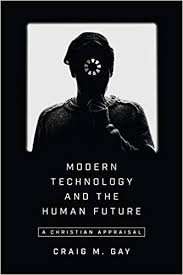Technology and the Western Story

In his Modern Technology and the Human Future , Craig Gay asks why we have been so accepting of automatic machinery, and why we are not more concerned that modern technological development is trending away from ordinary embodied human existence. How has technology become the metaphysics of the modern age (95)? Gay argues that our uncritical embrace of technology as the means to progress and the good life is the result of a particular way in which we see nature, or the world. Metaphors matter. And in chapter 3, Gay traces the development of a metaphor that has become the way in which humans now conceptualize the world they live in. The metaphor is a machine. We have conceived of the world as a collection of interconnected parts and elements that function in a mechanical fashion. This metaphor has had a radical impact on the way we understand our place in the world, our calling or vocation we might say. If all of life is more or less made of a vast collection of parts and elements ...

